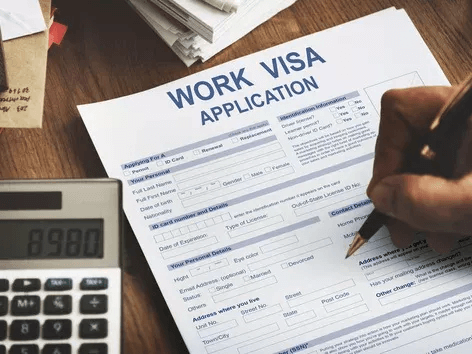Receiving back your security deposit is an important aspect of renting a property in Dubai. It is a legal right of the tenant to receive the full deposit back, provided that the property has been maintained in good condition. However, the process of receiving the deposit back can be daunting, especially for first-time renters. This article will provide a comprehensive guide on the steps to take to receive your security deposit back in Dubai.
The Dubai Rental Law mandates that the landlord is responsible for maintaining the property during the lease term and for repairing any defects that affect the use of the property. This means that the landlord is responsible for ensuring that the property is in good condition before the tenant moves in and that any damages caused by normal wear and tear are not deducted from the security deposit. The tenant, on the other hand, is responsible for maintaining the property during the lease term and for leaving the property in the same condition as when they moved in, with the exception of normal wear and tear.
To ensure that you receive your security deposit back, there are guidelines that you need to follow. These guidelines include reading your contract regarding maintenance, documenting the condition of the property before and after you move in, and notifying the landlord of any damages or repairs needed during the lease term. Additionally, if a dispute arises between you and the landlord regarding the security deposit, there are steps you can take to navigate rental disputes. This article will provide you with all the necessary information to receive your security deposit back in Dubai.
Key Takeaways
- Tenants have a legal right to receive their security deposit back in Dubai.
- Following guidelines such as documenting the condition of the property and notifying the landlord of any damages can increase the chances of receiving the full deposit back.
- In case of a dispute, tenants can navigate rental disputes and file a case with Dubai’s Rental Dispute Centre.
The Dubai Rental Law
Explanation of the Legal Framework Surrounding Security Deposits in Dubai
The Dubai Rental Law mandates that landlords collect a security deposit from tenants before the start of a tenancy. The deposit is typically equivalent to 5% of the annual rent for unfurnished properties and 10% for furnished properties. The purpose of the security deposit is to protect landlords against any damage or unpaid rent that may occur during the lease period.
Details on the Three Key Elements of the Law: Obtaining a Security Deposit, Its Use for End-Of-Lease Maintenance, and Refund Upon Lease Expiry
The law stipulates that landlords must obtain a security deposit from tenants before the start of the lease period. The deposit must be paid in full and cannot be paid in installments. The landlord must also provide a receipt for the deposit.
At the end of the lease period, the landlord may use the security deposit to cover any unpaid rent or to pay for any damage or wear and tear to the property. However, the landlord must provide an itemized list of deductions to the tenant within 14 days of the lease expiry date. If the tenant agrees with the deductions, the landlord may deduct the amount from the security deposit and return the balance to the tenant. If the tenant disputes the deductions, the landlord must file a case in court within 30 days of the lease expiry date.
The Unspecified Parameters Such As Allowable Deduction by Landlords and How Damage or Wear and Tear Are Classified
The Dubai Rental Law does not specify the allowable deductions that landlords may make from the security deposit. However, deductions must be reasonable and must be related to the damage or wear and tear caused by the tenant. Normal wear and tear, which is defined as the natural deterioration of the property that occurs over time, cannot be deducted from the security deposit.
In addition, the law does not provide a clear definition of what constitutes damage or wear and tear. As such, landlords and tenants may have different interpretations of what is considered normal wear and tear and what is considered damage. It is recommended that landlords and tenants agree on the condition of the property at the start of the lease period and document any existing damage or wear and tear in writing to avoid disputes at the end of the lease period.
Overall, the Dubai Rental Law provides a legal framework to protect both landlords and tenants in the rental market. By understanding the key elements of the law, tenants can take steps to ensure that they receive their security deposit back at the end of the lease period.
Guidelines for Receiving the Security Deposit Back
When it comes to receiving back your security deposit in Dubai, there are certain guidelines that tenants should follow to ensure a smooth and hassle-free process. The following sub-sections outline some of the key steps that tenants should take to increase their chances of receiving their security deposit back in full.
Importance of Thoroughly Reading and Understanding the Tenancy Contract
One of the most important steps that tenants can take to ensure the return of their security deposit is to thoroughly read and understand their tenancy contract. This includes understanding the terms and conditions related to the deposit, such as the amount of the deposit, the conditions under which it can be withheld, and the timeline for its return. By understanding these terms, tenants can avoid any misunderstandings or disputes with their landlord.
Advice on Checking the Property’s Condition, Seeking Clarifications, and Obtaining Permissions for Property Changes
Before moving into a rental property, tenants should carefully inspect the property’s condition and seek clarifications from their landlord if necessary. This includes checking for any damages or defects and ensuring that all appliances and fixtures are in good working order. Tenants should also obtain permission from their landlord before making any changes to the property, such as painting or installing shelves.
Emphasis on Getting Check-In and Check-Out Reports with Photographic Evidence
To ensure that there are no disputes regarding the condition of the property at the end of the tenancy, tenants should obtain a check-in report at the beginning of their tenancy and a check-out report at the end. These reports should include detailed descriptions of the property’s condition, including any damages or defects. Tenants should also take photographs of the property at both the check-in and check-out stages to provide additional evidence.
By following these guidelines, tenants can increase their chances of receiving their security deposit back in full and avoid any disputes with their landlord.
Navigating Rental Disputes
Introduction to the Dubai Rental Dispute Centre and Its Role
The Dubai Rental Dispute Centre is a government body that aims to resolve disputes between landlords and tenants in Dubai. Its role is to provide a platform for tenants and landlords to resolve disputes amicably, without having to resort to legal action. The Centre also provides mediation services to help resolve disputes through negotiation and settlement.
Discussion on the Fees and Timelines Associated with Registering a Case
If a tenant wants to register a case with the Dubai Rental Dispute Centre, they must pay a registration fee. The fee is usually a percentage of the disputed amount and varies depending on the nature of the dispute. The Centre has a strict timeline for resolving disputes, and cases are usually resolved within 30 days.
The Potential Drawbacks of Legal Action and the Benefits of Settling Issues Through Discussion
While legal action can be an effective way to resolve disputes, it can also be expensive and time-consuming. In addition, there is no guarantee that the outcome will be in the tenant’s favor. On the other hand, settling issues through discussion can be a faster and more cost-effective way to resolve disputes. It also has the added benefit of preserving the relationship between the tenant and landlord.
In conclusion, the Dubai Rental Dispute Centre provides an efficient and cost-effective way for tenants and landlords to resolve disputes. While legal action is an option, it should be considered a last resort, as it can be expensive and time-consuming. By settling issues through discussion, tenants and landlords can preserve their relationship and avoid unnecessary stress and expense.
Additional Tips for Receiving the Security Deposit Back
When it comes to receiving the security deposit back, there are a few additional tips that tenants in Dubai should keep in mind. These tips can help ensure that the tenant receives their full deposit back without any unnecessary delays or complications.
Recommendations for Property Upkeep, Such As Repairing and Repainting Walls
One of the best ways to ensure that the security deposit is returned in full is to maintain the property in good condition. This means repairing any damages and repainting walls if necessary. Tenants should also make sure that the property is clean and tidy when they move out. By doing so, tenants can avoid any deductions from their security deposit for damages or cleaning fees.
Importance of Recording Property-Related Expenses and Clearing Due Bills
Another important tip for receiving the security deposit back is to keep a record of any property-related expenses. This includes receipts for repairs or maintenance work done on the property. Tenants should also make sure that all bills related to the property are cleared before moving out. This can include utility bills, service charges, and any other outstanding fees.
Advice on Removing Personal Furniture and Handing Over Keys to RERA If Necessary
Tenants should also make sure that they remove all personal furniture and belongings from the property before moving out. This can help avoid any disputes over damages or missing items. Additionally, if the property is registered with the Real Estate Regulatory Agency (RERA), tenants should make sure to hand over the keys to the property to RERA if necessary. This can help ensure a smooth transition and avoid any issues with the landlord or property management.
By following these additional tips, tenants can increase their chances of receiving their security deposit back in full and avoid any unnecessary disputes or delays.
Landlord Responsibilities and Tenant Rights
Overview of the Landlord’s Obligations
Under Dubai law, landlords are required to provide tenants with a clean and safe living environment. This includes ensuring that the property is free from any hazards or defects that could pose a risk to the tenant’s health and safety. Additionally, landlords are responsible for complying with all building codes and regulations, as well as providing necessary repairs and maintenance to the property.
Discussion on Property Maintenance Responsibilities
When it comes to property maintenance, landlords and tenants have different responsibilities. Generally, landlords are responsible for major repairs and maintenance, while tenants are responsible for minor repairs and upkeep. However, the specifics of who is responsible for what can vary depending on the terms of the lease agreement.
Dubai law sets specific cost thresholds for landlord and tenant responsibilities. For example, landlords are responsible for repairing any defects or damages that are deemed to be “structural” in nature, such as issues with the foundation, roof, or walls. On the other hand, tenants are responsible for repairing any damages that are considered to be “cosmetic,” such as scratches or dents on the walls.
Specific Cost Thresholds for Landlord and Tenant Responsibilities
Dubai law also sets specific cost thresholds for landlord and tenant responsibilities. For example, landlords are responsible for any repairs or maintenance that cost more than 5% of the annual rent. However, if the tenant causes the damage, they may be held responsible for the cost of the repairs.
Tenants, on the other hand, are responsible for any repairs or maintenance that cost less than 5% of the annual rent. Additionally, tenants are responsible for keeping the property clean and tidy, and for reporting any damages or defects to the landlord in a timely manner.
Overall, it is important for both landlords and tenants to understand their rights and responsibilities when it comes to property maintenance and repairs. By following the terms of the lease agreement and complying with Dubai law, both parties can ensure a smooth and hassle-free tenancy experience.
Frequently Asked Questions
How long does it take to receive a security deposit refund in Dubai?
According to the Dubai Land Department, landlords have 14 days to return the security deposit after the tenant has vacated the property. However, this timeline may vary depending on the terms of the lease agreement.
What is the process for requesting a security deposit refund in Dubai?
The tenant should first request the return of their security deposit from the landlord in writing, outlining the reasons why they believe they are entitled to the refund. If the landlord fails to respond or refuses to return the deposit, the tenant can file a complaint with the Rental Dispute Settlement Centre.
Is it possible to dispute a security deposit deduction in Dubai?
Yes, tenants have the right to dispute any deductions made from their security deposit. They can do so by filing a complaint with the Rental Dispute Settlement Centre.
Are there any legal requirements for landlords to return security deposits in Dubai?
Yes, landlords are legally required to return the security deposit to the tenant at the end of the tenancy period, provided there are no damages or outstanding rent owed.
What is the maximum amount a landlord can deduct from a security deposit in Dubai?
The maximum amount a landlord can deduct from a security deposit is one month’s rent. However, this is subject to the terms of the lease agreement.
Can a security deposit be used to cover unpaid rent in Dubai?
Yes, landlords are allowed to deduct unpaid rent from the security deposit. However, they must provide evidence of the unpaid rent and the amount deducted.


